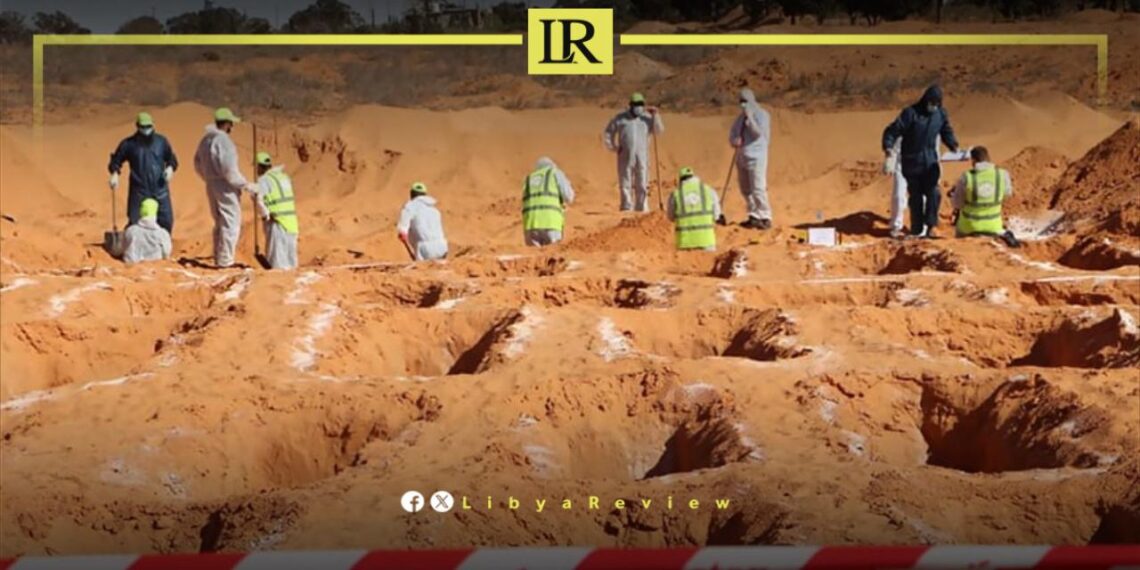UN investigators have expressed concern over the ongoing cycle of violence and lack of justice in Libya, as reported by the French newspaper “Le Monde”. The report highlighted that 353 bodies have been exhumed from mass graves in Tarhuna.
The newspaper focused on a report from the United Nations Support Mission in Libya and the UN High Commissioner for Human Rights, which detailed crimes such as killings, disappearances, sexual violence, abductions, torture, mistreatment, and forced displacement. It highlighted the atrocities committed by the “Kaniyat” militia between 2013 and 2020 against civilians in Tarhuna, condemning the impunity enjoyed by those responsible for these humanitarian crimes.
According to data collected by investigators from local authorities, at least 353 bodies have been exhumed from mass graves, with over 90% found bound and blindfolded, most of them shot, as detailed by the French newspaper.
By early 2024, hundreds of individuals remained missing. The report noted that mass graves continue to be discovered, with around 100 sites identified using satellite imagery.
The “Kaniyat” militia’s control over Tarhuna began after the fall of Muammar Gaddafi’s regime in 2011. The militia, led by the Kani family, consisted of members from various family and tribal affiliations. They enriched themselves through smuggling and extortion in exchange for providing public services, facilitated by their control over the police, military units, municipal council, and judiciary, according to “Le Monde”.
The UN report is based on field visits and interviews with over 50 survivors and relatives of victims. The earliest documented violence dates back to 2013, when entire families, believed to be involved in the killing of a Kani family member, were murdered, with their bodies publicly displayed to instil fear in the city.
Despite members of the militia being integrated into the Seventh Brigade under the Government of National Accord led by Fayez al-Sarraj and recognised by the international community, they continued to target civilians, including opponents, often by executing entire families or killing male family members only.
According to “Le Monde”, violence escalated significantly in 2019, and during the military assault on Tripoli, the “Kaniyat” shifted allegiance to the Eastern camp. The report notes that despite the ultimate failure of the assault on Tripoli, the “Kaniyat” continued to commit violations and abuses of international law and human rights.
During the counter-offensive by forces loyal to the Tripoli authorities, which also involved serious violence against suspected supporters of the “Kaniyat”, numerous atrocities were uncovered, and opportunities arose to apprehend those involved with the Kaniyat. However, most members fled to eastern Libya.
As reported by “Le Monde”, identifying responsibility for the crimes committed in Tarhuna is currently difficult, according to investigators. A list of alleged perpetrators has been compiled by a UN investigative committee, and arrest warrants have been issued by the Libyan judiciary, but these efforts have been largely ineffective, partly due to political loyalties and the protracted conflict.
The report explains that alliances exist between alleged perpetrators—some of whom may have fled to neighbouring countries—and powerful actors within Libya’s political and security institutions based in both the east and west.


